Working to manifest our dreams sometimes feels like it takes a lot of energy and focus. How wonderful would it be if you could also manifest while you sleep – resting at the same time as moving closer to your ideal future?
As it turns out, certain forms of self-hypnosis can help you do just that. Such programs can improve your sleep, helping to cultivate a positive mindset and gradually refining your ability to reach your goals in the waking world.
In this article, we'll explain why and how sleep hypnosis can help you get what you want in life.
We'll explore how the process actually works, and break down the science of how hypnosis impacts brain function.
In addition, we'll look at the importance of sleep – at why both quality and quantity matter. Finally, we'll offer some extra tips that complement self-hypnosis, helping you to get the most out of each night's rest.
How Does Listening To A Sleep Hypnosis Help?
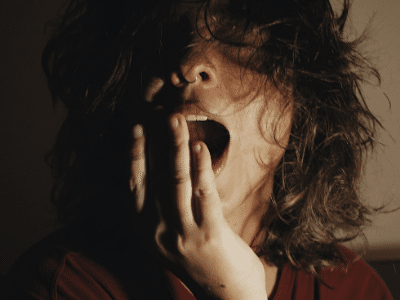
Sleep hypnosis is a particular type of hypnosis, during which you are guided into a restful trance that helps you then fall into a deep, restful sleep. As you likely already know, the key to effective manifestation is consistent positive energy.
By getting restful sleep every night, you ensure that you continue vibrating on a high frequency that attracts what you desire. All the time you're sleeping and replenishing your energy, you're also subconsciously sending out vibrations that help you to get what you want.
In contrast – as we'll consider later – a lack of good quality sleep breeds low mood and negativity, making it hard to achieve your goals.
The Process Of Using Hypnosis When Sleeping
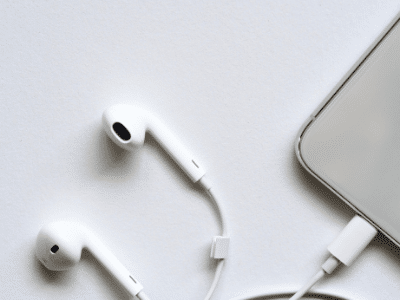
The process involves six key steps.
Preparation: you lie down and get comfortable in bed, finding a relaxing position. The recording helps you with this, beginning to relax you and helping you to clear your mind.
Release: you let go of the day's concerns and anxieties as your body and mind continue to relax. The recording guides you through this, perhaps by encouraging you to focus on your breathing or on a particular mental image.
Induction: you begin to enter a hypnotic trance. Your conscious mind starts to relax enough that your subconscious comes to the fore.
Deepening: the hypnotic trance deepens, and you become completely relaxed. At this stage, your awareness is diminished and your body feels loose and comfortable.
Hypnotic suggestion: you are given suggestions that help you achieve your goal – whether that's deep sleep, or something else. The recording may guide you through imagery that further helps you to take the suggestions on board.
Completion: you gently emerge from the hypnotic trance, returning to full consciousness again. In the case of sleep meditation, you will only reach the completion stage after your full night's sleep.
Contrary to popular media representations, self-hypnosis and all other forms of hypnotherapy is entirely voluntary. You have to want to be hypnotized – no one can make you do it.
But does it really work? In spite of all the anecdotal evidence, you might feel skeptical about whether hypnotherapy can really change things like your mindset or your sleep quality.
Let's turn now to the science supporting hypnotherapy, which shows just how well it can really work.
The Science Of Hypnosis

Science has been collecting evidence about hypnotherapy for a long time now, as it has been a popular alternative therapy since it was refined by the Scottish physician James Braid in the 1800s.
Our current understanding of hypnotherapy is based on a revised definition listed by ‘The American Psychological Association (APA)' in 2005. Modern hypnotherapy emphasizes the importance of imagination, subconscious suggestion, and self-development.
Studies have proven hypnotherapy effective for everything from smoking cessation to chronic pain control, weight loss, phobias, and anxiety.
There are no significant documented side effects for most people, making it a particularly safe way to address long-standing problems.
When it comes to using for sleep specifically, researchers at the University of Zurich have recently shown that self-hypnosis can help you overcome blocks to restful sleep.
In the study, participants avoided the use of sleep-inducing drugs and focused only on hypnotherapy. They experienced up to 80% more slow-wave sleep after hypnosis recordings (when compared to neutral recordings).
Slow-wave sleep plays a crucial role in whether you wake up feeling rested, and it helps your brain to recover from the day's exertions.
How Much Sleep Do I Need?
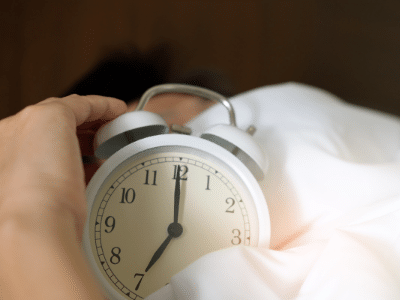
But when you're considering whether you need the help of self-hypnosis, it's also worth asking: how much sleep do you actually need?
Are you getting enough already, or are you surviving on the bare minimum amount? There's no one answer to the question “How long is a sleep cycle?”, as this varies between people.
Generally speaking, babies and toddlers need 11-14, children between 3 and 12 need 9-13, and teenagers need 8-10. Meanwhile, the average adult needs at least 7, and usually no more than 9.
So, to figure out what you need, try to track how to feel when you get between 7 and 9 hours per night – this will help you find the ideal sleep cycle length for you.
You may also find that the length you need varies on the amount of physical and mental activity you do during a day.
Sleep Debt And How To Pay It Back

In short, sleep debt (sometimes called sleep deficit) is the amount of sleep you've lost. For example, if you need 8 hours a day and you sleep for 5 hours for two nights, you accumulate a sleep debt of 6 hours.
If you're in chronic sleep debt, you'll always feel sluggish. In addition, you're most likely to develop diabetes, catch illnesses, and suffer from high blood pressure.
This may partly be because lack of sleep leads to too much cortisol – the “stress hormone”.
A vicious cycle can occur, with low mood causing insomnia, and insomnia triggering cortisol production that makes you feel even worse.
It takes time to repay a sleep debt – a consistent, healthy sleep pattern over weeks.
How To Sleep Better When Using A Sleep Hypnosis Program
Now that you have a sense of how sleep hypnosis works and how it boosts your well-being, let's look at some ways to complement self-hypnosis.
Here are three further techniques that can be used with or without hypnosis to help you relax at bedtime and get a better night's sleep.
Guided Hypnosis

It helps to regulate stress, and overtime changes how you respond to challenges.
Research even shows that meditation changes the structure of the brain, especially the part that processes and regulates emotion.
In particular, sleep meditation can help to shift gears after a busy day.
If you've been stressed or active, guided meditation can gently lead you into the right mindset for sleep.
Often, they will appeal to your imagination, instructing you to picture your surroundings or your body in a way that induces peace and calmness.
Others focus less on visual imagery and more on guiding you through a process of relaxing your muscles, one by one.
Some recordings are even a mix of meditation and hypnosis – this self-hypnosis meditation tracks both lead you into sleep, and help you get a better night's rest.
Be Mindful
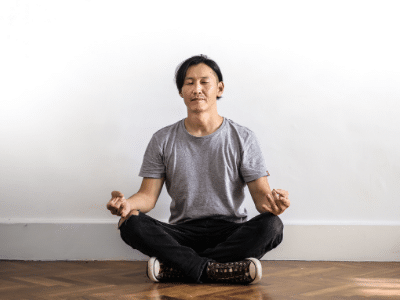
This means that changing your morning routine and your daytime routine can end up supporting a better night's sleep.
One particularly effective change is adding a mindfulness practice to your day.
Mindfulness exercise help to reduce stress level and cortisol production, which leads to easier relaxation and less restless sleep at night.
As with guided meditation, there are lots of different approaches to mindfulness.
Some have you focus on an object, such as a stone in your hand or the flame of a candle in front of you.
Others are more about becoming aware of your body and regulating your breath.
In all cases, however, the aim is to quieten your mind and dismiss distractions – at least for a time.
These exercises can be especially helpful when you feel angry, stressed, or out of control of something in life.
Use Sleep Sprays
Finally, aromatherapy teaches us that we can use particular scents to help us change moods. Some oils make us feel sleepy and relaxed – they are often marketed as pillow mists, and include a blend of different ingredients.
Lavender is a common choice as the dominant ingredient, but other useful scents include bergamot, chamomile, and geranium. You might try a range of different ones and see which ones you prefer.
You can get a similar effect from burning lavender candles in your room before you go to sleep, but the advantage of a pillow mist is that the scent surrounds you all night.
Improve Sleep With This Self-Hypnosis Program
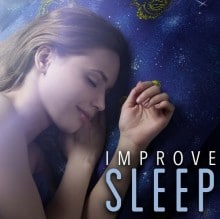
It sends you into a deep sleep and helps you stay in a positive, productive frame of mind conducive to manifesting your goals in waking life.
On ehypnosis.com, you can find an Improving Sleep program, which offers sleep hypnosis audio. You don't have to learn how to hypnotize yourself – you simply listen to the deep sleep hypnosis recordings and fall asleep.
After a few nights of sleep, self-hypnosis will have increasingly obvious impacts on your life.
You'll likely wake up feeling better, and have more energy throughout the day – as well as a productive mindset.
Often, self-hypnosis for sleep is the gateway to learning how to use hypnosis to accomplish other goals.
This safe, effective and affordable treatment helps to tackle the things that have been holding you back for years, paving the way for a happier life.
The post Are You Doing This? Deep Sleep Hypnosis For Manifesting Whilst You Dream appeared first on The Law Of Attraction.
* This article was originally published here
No comments:
Post a Comment